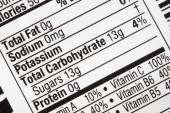A Focus on ‘Protective Foods’ Could Turn the Tide of CVD and Death
Current advice to restrict dairy, especially the whole-fat variety, “is most likely not necessary or appropriate,” says Andrew Mente.

Shifting the focus from low-fat, low-carb diets to the idea of a “protective” diet rich in whole foods could be a powerful tactic across the globe for reducing CV events and death, according to a new analysis.
“The biggest gains in avoiding premature cardiovascular disease and deaths globally is expected to occur by increasing the intake of healthy food to a moderate degree, especially in poor rural regions,” said lead study author Andrew Mente, PhD (McMaster University, Hamilton, Canada). “The current advice to restrict some foods like dairy, especially whole-fat dairy, to very low amounts is most likely not necessary or appropriate.”
For the analysis, the investigators used data on 147,642 people in 21 countries from the global Prospective Urban Rural Epidemiology (PURE) study to develop a healthy diet score, which they then tested for its relationship to CVD and mortality. Compared with those with the lowest scores, those with the highest healthy diet scores had a 30% lower risk of death, an 18% lower likelihood of CVD, a 14% lower risk of MI, and a 19% lower risk of stroke over a median follow-up of 9.3 years.
The study was published today in the European Heart Journal.
To TCTMD, Mente said what qualifies as a high PURE healthy diet score is probably closest in resemblance to a Mediterranean diet. Their analysis set the ideal proportions at 56% carbohydrates, 27% fats (including 8.9% from saturated and 15.0% from unsaturated fats), and 17% protein. The least-healthy diets were those consisting of higher amounts of carbohydrates and lower amounts of fats and protein, as well as low intake of red meat and poultry.
“From a Western diet perspective, 56% carbohydrates may seem high, but it should be considered in the context of diets globally,” Mente said.
While other diet scores exist, including Dietary Approaches to Stop Hypertension (DASH), Mediterranean, Healthy Eating Index (HEI), and the Planetary diet score, most combine foods or nutrients thought to be protective with foods considered somewhat harmful. The PURE investigators, Mente said, wanted to put the focus on “protective” whole foods, including dairy, which has newer information supporting its protectiveness against death and CV events that has not been incorporated into dietary guidelines.
PURE Healthy Diet Score
Mente and colleagues created the score based on six food categories that have individually been associated with longevity (fruit, vegetables, legumes, nuts, fish, and whole-fat dairy products, not including butter or whipped cream). Scores ranged from 0 to 6, with those of 4 or higher considered the healthiest.
The 147,642 study participants from whom the healthy diet score was created resided in 21 countries on five continents. The consistency of the score was examined across trial populations for applicability to those from high-, middle-, and low-income countries as well as to those with and without prior MI or stroke. The score also was compared with other commonly used diet scores for a combined analysis of five independent studies that included 245,000 individuals from 80 countries across all inhabited continents.
PURE participants recorded their food intake using country-specific food frequency questionnaires at baseline. On the 0 to 6 scale, the average diet score was 2.95. Scores of 5 or higher were consistent with dietary habits that included 563 g/day of fruit and vegetables, 48 g/day of legumes, 28.2 g/day of nuts, 26.1 g/day of fish, 54.5 g/day of red meat, 22 g/day of poultry, and 185.5 g/day of dairy. The dairy component allows for up to 130.5 g/day of whole-fat dairy consumption.
“There's no basis, based on our data and other prospective cohort studies, to focus mainly on low-fat dairy and to avoid whole-fat dairy,” Mente said.
In adjusted analyses, higher scores were associated with lower risks of mortality, major CVD, MI, stroke, CVD mortality, non-CVD mortality, and the composite of death or major CVD (P for trend < 0.001).
The same patterns were seen when applying the PURE-derived score to the combined study population. Compared with a low diet score, a score of 5 or more was associated with a lower risk of CVD mortality (HR 0.72; 95% CI 0.60-0.85), non-CVD mortality (HR 0.68; 95% CI 0.60-0.78), and the composite of death or CVD (HR 0.78; 95% CI 0.72-0.84). The findings were similar in those with and without prior CVD.
In modeling where any component of the diet score was removed, the associations between the diet score and the composite of CVD or death weakened, suggesting that “each food makes a similar modest contribution to the score,” the authors say.
The lower risk of events associated with the PURE healthy diet score was consistent across geographic regions and in countries grouped by income levels. However, the associations were stronger in South Asia, China, and Africa—all countries with poor overall scores of 3 or less—and in countries with lower gross national incomes. Mente and colleagues say this finding suggests undernutrition is a potential factor in a large proportion of deaths and CVD around the world.
Overall, the PURE healthy diet score was slightly more predictive of composite events than the Mediterranean, HEI, and DASH diet scores, and substantially more predictive than the Planetary diet score, they found.
Top Modifiable Risk Factor
In an accompanying editorial, Dariush Mozaffarian, MD, DrPH (Tufts University, Boston, MA), notes that with good nutrition recognized as a top modifiable risk factor for death and disability, national nutrition guidelines need to catch up with science.
According to Mozaffarian, the PURE data not only provide more support for the role of whole-fat dairy in a healthy diet but also suggest that unprocessed red meats, which made no difference when they were included or excluded, “are not a priority target for health to either avoid (as strongly emphasized by the EAT-Lancet report) or to include.”
However, while Mente and colleagues are of the opinion that a healthy diet should include “diverse natural foods in moderation,” Mozaffarian says the findings support targeting specific food groups in specific servings: five of fruits and vegetables, two of dairy, 1.2 of nuts, 0.5 of legumes, and 0.3 of fish per day.
Furthermore, Mozaffarian also disagrees with Mente and colleagues’ suggestion that since sensitivity analyses showed that red meat in diets appeared to have a neutral association with outcomes, it is fine in moderation. “The present findings provide no support for major health benefits of inclusion or ‘variety and moderation’ of other ‘natural foods’ such as red meat, poultry, or butter,” he writes.
For his part, Mente believes their findings “can be used to ensure that the public's understanding of healthy eating patterns and relevant global policies are able to catch up with the science, which is to focus on foods and overall diet quality.” Right now, the World Health Organization, as well as government policy and industry, is mostly focused on reducing certain nutrients such as fat, saturated fat, and salt, he said.
L.A. McKeown is a Senior Medical Journalist for TCTMD, the Section Editor of CV Team Forum, and Senior Medical…
Read Full BioSources
Mente A, Dehghan M, Rangarajan S, et al. Diet, cardiovascular disease, and mortality in 80 countries. Eur Heart J. 2023;Epub ahead of print.
Mozaffarian D. Identifying nutritional priorities for global health: time for a more PURE focus on protective foods. Eur Heart J. 2023;Epub ahead of print.
Disclosures
- Mente reports no relevant conflicts of interest.
- Mozaffarian reports, outside the submitted work, research funding from the National Institutes of Health, the Gates Foundation, The Rockefeller Foundation, Vail Innovative Global Research, and the Kaiser Permanente Fund; personal fees from Acasti Pharma and Barilla; scientific advisory board for Beren Therapeutics, Brightseed, Calibrate, Elysium Health, Filtricine, HumanCo, Instacart Health, January Inc., and Perfect Day (ended: Day Two, Discern Dx, Season Health, and Tiny Organics); equity in Calibrate and HumanCo; and chapter royalties from UpToDate.





Comments